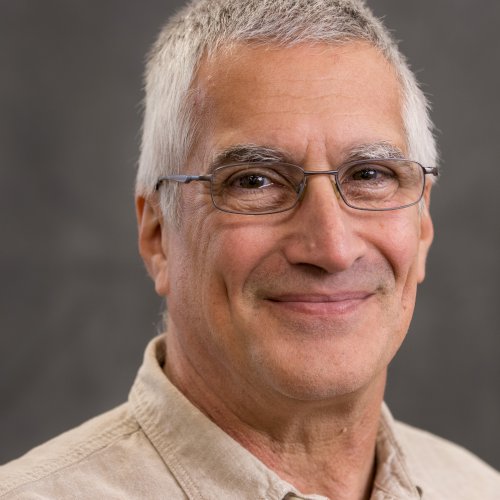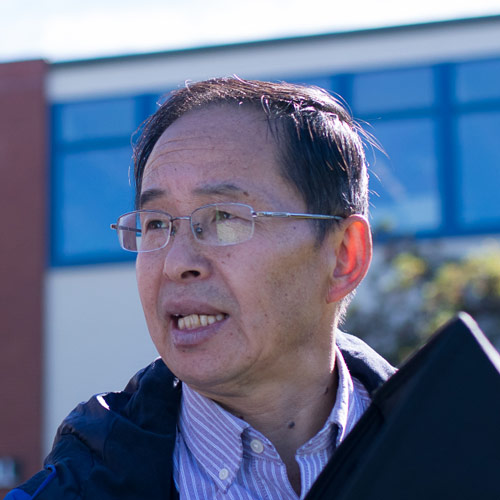
Welcome to our Program
Our location provides ready access to more than five million acres of the great North Maine Woods, meaning we have the best field laboratory nature could offer right in our backyard.
Research with professionals
You aren’t just learning from professors who really care about your progress, you’re learning from researchers who are making important discoveries and contributions in their fields of study. And many times, you’re right beside them conducting fieldwork.


Not your typical lab equipment
With a 377 kW solar field on campus and a biomass boiler system, we have many renewable energy sources on campus that serve double duty as great opportunities for research and learning.
X marks the spot
You’ll be helping the local community as you learn about Geographic Information Systems. Our unique GIS Certificate offering allows students to work on real GIS projects to earn hands-on experience with the technology.

Areas of Study
Our Environmental Studies and Sustainability program is composed of diversified areas of study to best prepare you for your career in the environmental sector. You decide where your focus will be, and we’ll help to provide the opportunities for individualized approaches to understanding and addressing environmental problems.
People have studied human life, society and social relations for thousands of years. This area of study not only exposes students to fundamental anthropological concepts, but also allows them to explore those concepts through hands-on archaeological activities and research related to the indigenous people who once inhabited the northern Maine region.
“Chemistry is the study of the interactions between matter and energy.” From organic chemistry to biochemistry, students will receive a well-rounded understanding of chemistry and its basic principles. They also will have the opportunity to put their knowledge into practice through in-depth laboratory activities.
In studying living organisms and their relationship to each other and their environment, students will focus on everything from ecosystems to biodiversity, and develop a finer appreciation for the natural world around them. Going out in the field for this area of study is a given.
Energy and Sustainability have fast become a top area of study at institutions across the country. Students will learn about fossil fuels, analyze the shift toward alternate energy sources, and explore the wide range of renewable energy options and emerging energy solutions for the planet.
Geology is the study of the Earth, the materials of which it is made, the structure of those materials, and the processes acting upon them. It includes the study of organisms that have inhabited our planet. An important part of geology is the study of how Earth’s materials, structures, processes and organisms have changed over time. Understanding of geological materials and processes help deal with geological hazards and impacts on human life.
Geology is the study of the Earth, the materials of which it is made, the structure of those materials, and the processes acting upon them. It includes the study of organisms that have inhabited our planet. An important part of geology is the study of how Earth’s materials, structures, processes and organisms have changed over time. Understanding of geological materials and processes help deal with geological hazards and impacts on human life.
When I attended UMPI, I was working full time in the agriculture industry. The flexibility of taking classes close to home and a very accommodating employer allowed me to both work long hours and finish my degree. To have a strong and healthy Ag economy in Northern Maine, we need a school willing to educate people for an Ag-based career, and UMPI provides that. The Ag industry throughout the country is always looking for talented people to fill positions, and currently there is a shortage of qualified people to fill these. If you love working outside, I would encourage you to consider looking into a career that begins with a degree in Environmental Science from the University of Maine at Presque Isle. It is a campus that will not only prepare you well for a career in the Ag industry, it’s strategically located in a county with almost 400,000 acres tillable land and millions of acres of forest land.
Marcus Flewelling, Class of 2012, B.S. in Environmental Studies and Sustainability
I was amazed at the many opportunities that I had while I was in the Environmental Studies program at UMPI. Classes were only part of my education; there were so many more unique experiences including field trips, professional presentations, research opportunities and various club memberships available to me, all of which aided in preparing me for an environmental career. My professors involved me in various ecological studies and GIS projects that they were working on outside of school providing me with valuable skills and experience when it came time to pursue a career.
The faculty are active in their areas of expertise and maintain many relationships with local professionals working in the area. Such contacts often result in unique opportunities for students to get involved in real-world research and fieldwork while in the program. Examples from when I was in the program include working with staff from the Maine Dept. of Inland Fisheries and Wildlife, The Maine Dept. of Environmental Protection, The Aroostook National Wildlife Refuge and the Central Aroostook Soil and Water Conservation District. These only represent the opportunities that I had the time for, there actually were many more that I couldn’t fit into my schedule! The networking that developed from these professional working relationships has proven invaluable now that I work in the field.
Another important aspect of attending UMPI was the smaller class size. I was able to get to know all of my professors on a personal basis. The comfort and familiarity that resulted from this made it feel like I was often learning from family. To this day I look back fondly at the time spent with my “UMPI Family” as a great personal experience. A smaller class size definitely benefits the educational process and added tremendous value to my time spent at UMPI. I found that at UMPI, I enjoyed the professors and the in depth education they provided so much that I was actually sad when it was time to graduate!
Marcus Flewelling, Class of 2012, B.S. in Environmental Studies and Sustainability
If you’re interested in exploring a degree in Agriculture, check out our Agricultural Science & Agribusiness degree.
Our Bachelor’s degree in Environmental Science and Sustainability is a 120-credit program that includes: the General Education Curriculum (40 credits); Core Courses; sections on Science and the Environment, Energy and the Environment, and Humans and the Environment; a Practical Learning Experience; and general electives.
We offer further opportunities through our GIS (Geographic Information Systems) certificate, aimed at bringing modern GPS and GIS technologies to students of all majors and to local communities. A two-semester GIS sequence is offered, ENV308-Introduction to GIS (GIS I) in the spring, and ENV408-GIS Applications and Advanced Spatial Analyses (GIS II) in the fall.Our Environmental Studies Minor is designed specifically for students from a diversity of majors with a strong interest in environmental issues, but not strictly environmental science, to gain a basic interdisciplinary perspective on these issues and challenges, including environmental policy and law, philosophy and literature, and sustainable development.
Our Chemistry Minor provides students with a grounding in basic chemistry principles and a study of chemistry sub-disciplines, including organic chemistry, biochemistry and environmental chemistry.
Our Geology Minor is designed for students seeking a fundamental understanding of Earth materials and geological processes. This minor should especially be considered by students who may be interested in pursuing careers in the fields of chemistry, engineering and earth sciences.
Our Physical Science Minor gives students a foundation in the science of non-living systems, and encompasses principles of physics and chemistry.
To view more information and program requirements, see the Course Catalog
Our Environmental Studies program prepares students for future careers as a(n):
- Environmental biologist
- Geographic Information Systems mapping specialist
- Ecologist
- Geologist
- Microbiologist
- Research scientist
- Laboratory technician
- Soil scientist
- Environmental consultant
- Naturalist
- Wildlife manager
- Forestry specialist





